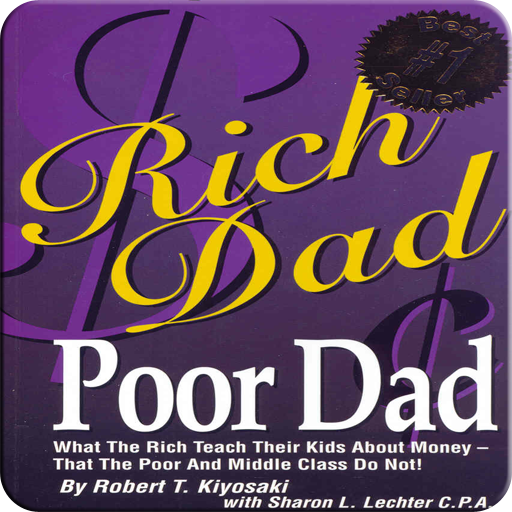“What does ignorance have to do with greed and fear?” I asked.
“無知與恐懼和貪婪有什么關系?”我問。
“Because it is ignorance about money that causes so much greed and fear,” said rich dad. “Let me give you some examples. A doctor, wanting more money to better provide for his family, raises his fees. By raising his fees, it makes health care more expensive for everyone. It hurts the poor people the most, so they have worse health than those with money. Because the doctors raise their fees, the attorneys raise their fees. Because the attorneys’ fees have gone up, schoolteachers want a raise, which raises our taxes, and on and on and on. Soon there will be such a horrifying gap between the rich and the poor that chaos will break out and another great civilization will collapse. History proves that great civilizations collapse when the gap between the haves and have-nots is too great. Sadly, America is on that same course because we haven’t learned from history. We only memorize historical dates and names, not the lesson.”
“對錢的無知導致了恐懼和貪婪,”富爸爸說,“我可以給你們舉一些例子。一個醫生,想多掙些錢讓家人生活得更好,于是就提高了收費,這就導致人們醫療保健費用的增加。這極大地損害了窮人的利益,所以窮人的健康狀況要比富人差。“由于醫生提高收費,律師也提高了收費;由于律師提高收費,學校的老師也想增加收入,這就使政府提高了稅收。這種循環不斷繼續下去,不久,在富人和窮人之間就有了一條可怕的鴻溝,不安定就會出現。當鴻溝大到極點時,一個社會就會崩潰。美國現在的情況就是這樣,這種歷史一再重演,是因為人們沒有以史為鑒。我們只記住了歷史事件發生的時間和名稱,卻沒有記住教訓。”
“Aren’t prices supposed to go up?” I asked.
“漲價一定不對嗎?”我問。

“In an educated society with a well-run government, prices should actually come down. Of course, that is often only true in theory. Prices go up because of greed and fear caused by ignorance. If schools taught people about money, there would be more money and lower prices. But schools focus only on teaching people to work for money, not how to harness money’s power.”
“在一個民眾受到良好教育和政府治理有方的社會中不會漲價,實際上應該降價。當然,通常在理論上是如此。價格上漲的原因是由無知引起的貪婪和恐懼。如果學校教學生關于錢的知識,社會就有可能更富足,物價也會更低廉。但學校只關注教學生如何為錢工作,而不是掌握金錢。”
“But don’t we have business schools?” Mike asked. “And haven’t you encouraged me to go for my MBA?”
“在一個民眾受到良好教育和政府治理有方的社會中不會漲價,實際上應該降價。當然,通常在理論上是如此。價格上漲的原因是由無知引起的貪婪和恐懼。如果學校教學生關于錢的知識,社會就有可能更富足,物價也會更低廉。但學校只關注教學生如何為錢工作,而不是掌握金錢。”
“Yes,” said rich dad. “But all too often business schools train employees to become sophisticated bean-counters. Heaven forbid a bean-counter takes over a business. All they do is look at the numbers, fire people, and kill the business. I know this because I hire bean-counters. All they think about is cutting costs and raising prices, which cause more problems. Bean-counting is important. I wish more people knew it, but it, too, is not the whole picture,” added rich dad angrily.
“是的,”富爸爸說,“但不管怎么說,商學院是專門訓練那些精于計算的人的,可千萬不要讓他們做生意。他們只會看看數字,解雇員工并把生意搞糟。我知道這一點是因為我也雇用了這樣的人。他們所想的只是降低成本、提高價格,這只會帶來更多的問題。精于計算是重要的,我希望更多的人能夠懂得它,但這并不是全部。”富爸爸生氣地補充道。
“So is there an answer?” asked Mike.
“那該怎么辦呢?”邁克問。
“Yes,” said rich dad. “Learn to use your emotions to think, not think with your emotions. When you boys mastered your emotions by agreeing to work for free, I knew there was hope. When you again resisted your emotions when I tempted you with more money, you were again learning to think in spite of being emotionally charged. That’s the first step.”
“要學會讓感情跟隨你的思想,而不要讓思想跟隨你的感情。當你們控制了感情,同意免費干活時,我就知道你們還有希望。當我用更多的錢誘惑你們時,你們又一次控制住了感情,你們在學習用頭腦思考而不是任由感情控制你們。這是第一步。”












